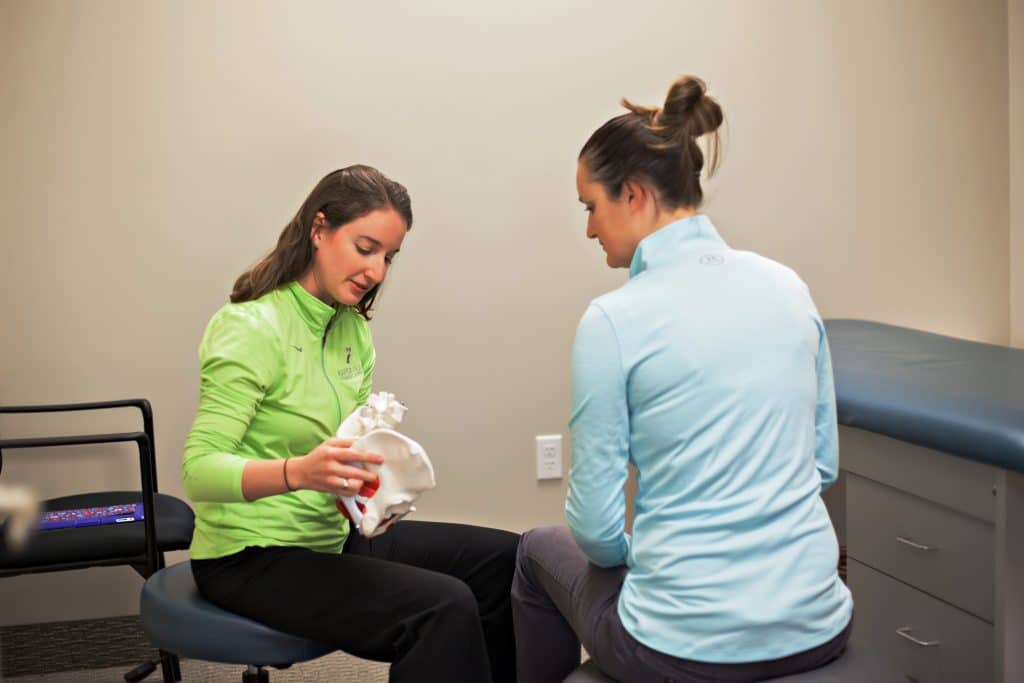What to Expect at Pelvic Floor Physical Therapy

Hi, my name is Brooke Case and I am a pelvic floor physical therapist. Treatment for pelvic floor dysfunction may seem daunting. I am here to inform you more about what to expect to help decrease any anxiety and stress that may come with attending that initial appointment and any subsequent visits. I promise it is not as scary as it sounds. My patients are so appreciative and pleasantly surprised by how great their functional outcomes are following a treatment plan. Please know that when you get a referral for pelvic floor rehabilitation and treatment, the physical therapists you will be scheduled with have specific and extensive training in this wonderful area of physical therapy!
What is the “pelvic floor”?
The pelvic floor is made up of three layers of muscle, fascia, ligaments, and connective tissue. It is the only 3D muscle group in the body and it supports the pelvic organs while also providing and enhancing the stability of the hips, pelvis, low back, and core.
What do pelvic floor physical therapists treat? (just to name a few 😉)
- Urinary Leakage
- Urinary urgency and frequency
- Cystocele, rectocele, prolapse
- Abdominal and pelvic pain
- Dyspareunia (pain with sexual intercourse)
- Low back, hip, core, and pelvic dysfunction (weakness, pain)
- Pre/postpartum women
- Bowel dysfunction (incontinence, constipation, inflammatory diseases)
- Endometriosis, PCOS, Interstitial Cystitis, vulvodynia
- Post Prostatectomy
What to expect at the initial evaluation?
- LOTS and LOTS of education and discussion regarding medical history, symptoms, and any questions and concerns you may have. A plan of care, specific to you, will also be developed!
- Pelvic floor musculature assessment to establish an appropriate home exercise program.
- Low back, hips, and pelvic assessment
What to expect at subsequent treatment sessions?
Treatment for pelvic floor dysfunction will include manual techniques for optimal joint mobility and soft tissue mobilization to address any myofascial or connective tissue tightness, as well as neuromuscular retraining to assist with urinary control and pelvic organ support. The patient will work 1 on 1 with the physical therapist for 30-45 minutes and progress to more of an independent exercise routine when they are ready. Sessions may include diaphragm breathing techniques, relaxation strategies, as well as hip, pelvic, and core strengthening. The exercise program will be tailored specifically to your needs.
Are you dealing with pelvic floor issues, pain, or discomfort? Call 616.256.8679 to schedule an appointment with one of our pelvic floor physical therapists. For more information, visit https://www.hjphysicaltherapy.com/specialties/pelvic-floor-rehabilitation/.
